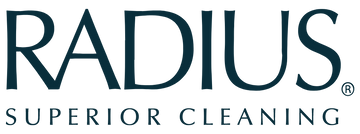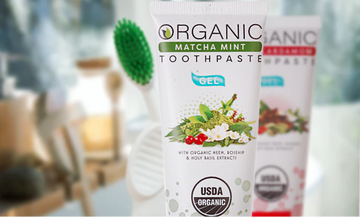Whitening toothpaste? Organic toothpaste? Bubblegum toothpaste? Or even…..no toothpaste?
Today, we have so many options on the market for toothpaste, but is toothpaste really all that beneficial? Would we be better off without toothpaste AT ALL?
Well, no.
However, there are a few nuances we should go through about why toothpaste is effective.
First off, let’s talk about what the act of brushing our teeth actually does for our oral health. The main function of brushing our teeth is to remove plaque, which is a biofilm composed of bacteria and sugars that sticks to our teeth.
This plaque is responsible for cavities, gum disease, and enamel erosion. If it’s not cleaned every day, it can harden into calculus, which is not only more difficult to remove, but is basically a breeding ground for harmful bacteria.
Toothbrushes, by themselves, can be effective at removing plaque.
Of course, the simple act of putting bristles against your pearly (or not so pearly) whites can help to remove plaque.
Your toothbrush, by itself, will keep your teeth in decent enough shape, particularly if you use a soft-bristle toothbrush that doesn’t damage your gums, brush the recommended 2 times a day for 2 minutes each, use the proper 360 brushing technique, and replace the toothbrush when it begins to show wear.
That said, it doesn’t mean that toothpaste is ineffective.
Toothpaste and tooth powders have been around for over 7,000 years and used across many, many cultures, so they must have some benefit...right?
Well...chew sticks work, so why won’t a toothbrush without toothpaste?
If you’ve read previous articles, you might have seen us mention chew sticks, frayed twigs that have been used for thousands of years across cultures and are still widely used today across the world.
A North American Journal of American Sciences article revealed that chew sticks are about as effective (and sometimes even more effective) than a standard toothbrush and fluoride toothpaste.
Taking into consideration that toothbrush would, in theory, act just like a chew stick as a mechanism to remove plaque, why would a toothbrush sans the toothpaste not be as effective?
Well, the reason lies in the fact that the type of sticks used to make chewing sticks, such as those made from the neem tree, contain tannins and other antibacterial compounds that help maintain oral health.
Before you run out and buy chewing sticks, though, beware that the efficacy of the stick can vary significantly with the type of stick used.

Ok, so we know a plain old toothbrush without the paste doesn’t quite cut it. Let’s dive into four primary benefits of adding that pea-sized dollop of paste to your brushing routine:
1) It’s all about the bacteria-busting elements. The compounds in toothpaste are basically a way to double-down on the plaque-fighting power of your toothbrush. Not only that, but these compounds have the added benefit of helping to whiten teeth and freshen breath.
You are probably most familiar with fluoride as one of the most notorious ingredients in toothpaste. Since the 1890s, fluoride has been added to toothpaste and quickly earned a reputation as the best cavity-fighting agent. To be fair, fluoride does help with dental caries and tooth decay.
That said, there have been significant concerns around the toxicity of fluoride in recent years, particularly in children and pregnant women.
Since tooth decay is not a result of fluoride deficiency, some oral care companies, like us here at RADIUS, have opted for organic non-toxic options that provide the same benefit as fluoride.
For our toothpaste, we use plaque-fighting erythritol, nutrient-rich coconut water, calming chamomile flower, rice powder to polish your teeth, and naturally whitening organic extracts like neem, rosehip and holy basil.
2) Abrasives make it better. Most toothpastes contain mild, enamel-safe abrasives which work in conjunction with your brush to wipe away any of the nasties clinging to your teeth. This can be really helpful to reach some of those hard-to-get places in between your teeth where the toothbrush doesn’t quite cut it.
3) Lubrication. Toothpaste provides additional lubrication for your teeth. While you could just use water or saliva, the added lubrication ensures that the bristles will be less likely to scratch your gums or, worse, damage your enamel.
4) Fresher breath, whiter teeth, and better taste. As we said before, while the brush removes plaque that can be responsible for bad breath, most toothpastes contain elements that not only taste great, but also makes your breath smell pleasant and actively whiten your teeth. In the case of RADIUS, all of our toothpastes are naturally whitening and you can choose whether you want to greet people with breath that smells like coconut banana, dragon fruit, matcha mint, clove cardamom, or mint aloe neem.Ok, so we’ve made our case for the toothpaste...STILL determined to brush without toothpaste? Consider purchasing plaque disclosing tablets which contain dye that highlights plaque on your teeth, thus revealing which areas you need to pay a bit more attention to when brushing.
This way, if you’re thorough, you’ll be able to get the most thorough clean. Even if you do use a toothbrush and toothpaste, it might be a good exercise for you or your child to identify the ‘problem areas’ before they become an issue. Just be sure not to swallow.

Also for your consideration: maybe it’s not all or nothing. According to a 1998 study done by the Journal of the American Dental Association, it might be better to brush both with toothpaste and without it.
In the study, over a period of six months, patients brushed their teeth first without toothpaste until their teeth felt clean and then added toothpaste.
The result? 63% reduction in lingual (i.e. tongue-facing side of the tooth) calculus and a 55% reduction in lingual gum bleeding. Just remember, if you decided to go this route, it’s important that you remember to use a very soft bristle toothbrush so you don’t risk scratching your enamel!
Anyone else running their tongue over their teeth? It might be that time of day. Happy brushing, friends!



